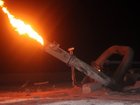The head of the Organization of the Islamic Cooperation on Monday warned of a possible internationalization of the Syrian crisis if the regime does not comply with calls for reform and end the bloodshed.
If Syria "does not comply with the legitimate demands of the Syrian people and international calls by the OIC, the Arab League and the United Nations, it will risk the internationalization of its crisis," Ekmeleddin Ihsanoglu said.
 Full Story
Full Story
The Arab League is preparing to send observers to Syria but needs guarantees from Damascus on their mission and the rights of each side, the organization’s chief Nabil al-Arabi said Monday.
The decision to send a 500-strong delegation follows a vote to suspend Damascus from the 22-member Arab bloc over its deadly crackdown on protests. It came a day after Syria said it would welcome such a mission.
 Full Story
Full Story
European Union nations tightened the noose on Syria on Monday, slapping new sanctions on President Bashar al-Assad's regime and urging U.N. action to protect civilians after eight months of bloodshed.
Foreign ministers from the 27-nation bloc blacklisted a further 18 Syrians, mostly members of the military, bringing to 74 the members of Assad's inner circle hit in past months by an EU assets freeze and travel ban.
 Full Story
Full Story
Jordan's King Abdullah II on Monday became the first Arab leader to call for Syrian President Bashar al-Assad to step down, in a BBC interview.
"I believe, if I were in his shoes, I would step down," the king said. "I would step down and make sure whoever comes behind me has the ability to change the status quo that we're seeing."
 Full Story
Full Story
Iraqi Foreign Minister Hoshyar Zebari on Monday defended his country's abstention from a vote on suspending Syria from the Arab League, emphasizing that events in Syria have a direct impact on Iraq.
The Arab League voted on Saturday to suspend Syria, which has been trying to crush a popular uprising against President Bashar Assad's regime since March.
 Full Story
Full Story
Turkey's foreign minister warned embattled leaders in Syria and other Middle East countries on Monday that those who cannot meet their people's demands "will go".
Ahmet Davutoglu spoke a day after Ankara expressed outrage after attacks on its diplomatic missions in Syria by pro-regime protesters and summoned the country's envoy.
 Full Story
Full Story
Iran's parliament on Monday approved legislation to severely increase punishment for Iranian citizens “who dare” to travel to the lands of arch-foe Israel.
Under the new law, any Iranian who visits Israel will face a jail term of two to five years, while they will also be banned from holding a passport for three to five years, the official IRNA news agency reported.
 Full Story
Full Story
Egyptian security officials have arrested two more members of an Islamist group thought to be behind attacks on a pipeline supplying gas to Israel and Jordan, the official MENA agency reported Monday.
Abdel Karim Mohammed Ahmed and Ahmed Salem Awad of the radical Islamist al-Takfeer wal Hijra were detained during a sweep in the north Sinai town of el-Arish, a day after one of the group's leading members was held, said MENA.
 Full Story
Full Story
Syrian strongman Bashar Assad's exiled uncle, a former regime insider accused of carrying out a massacre in 1982, says he wants to oversee a peaceful transition of power in his homeland.
On Sunday, Rifaat Assad took charge of a new opposition movement in exile. Afterwards, in an interview with AFP and Le Monde, he urged Arab and world powers to negotiate his nephew's safe departure from power.
 Full Story
Full Story
Syria's Foreign Minister Walid al-Muallem said Monday that the government in Damascus will not budge despite its suspension from the Arab League, which he warned was a "dangerous step."
"The decision of the Arab League to suspend Syria... represents a dangerous step," Muallem told a packed news conference in Damascus.
 Full Story
Full Story



